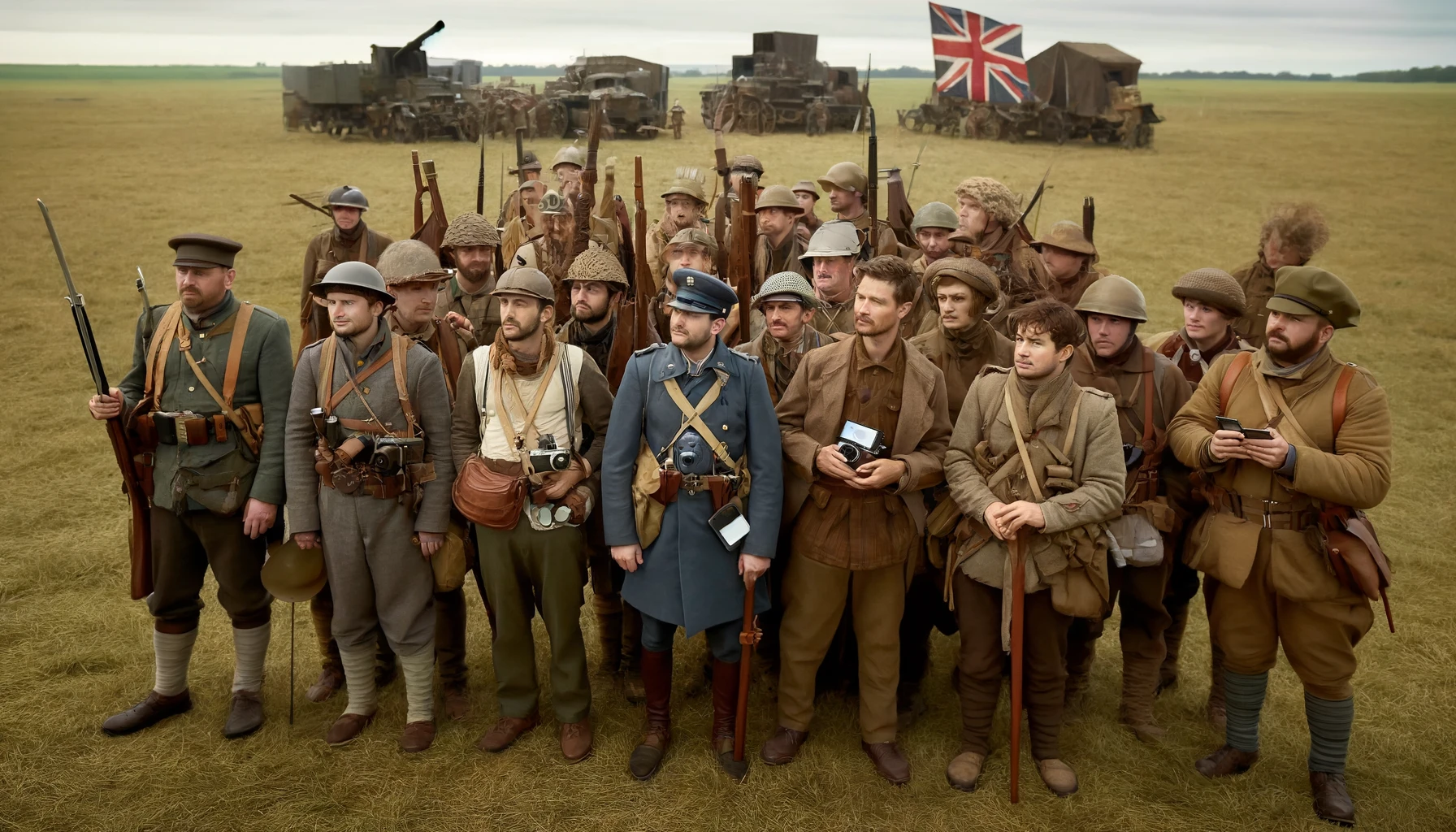In a move that’s caught the attention of historians, activists, and confused Renaissance fair goers alike, a global coalition of historical reenactors has officially refused to cover the Gaza conflict, citing its “too realistic and historically parallel” nature as the primary reason for their boycott. The announcement came after an intense debate within the reenactment community, traditionally known for their commitment to authenticity and a willingness to tackle the gritty realities of history, albeit usually with blunted swords and safety regulations.
“We’re accustomed to reenacting the battles of yore, from the muddy fields of Agincourt to the shores of Normandy,” declared Sir Reginald Faux-Chainmail, a prominent member of the Medieval Reenactment Society and occasional King Arthur. “But the Gaza situation? It’s like history repeating itself, only live, and without the option to pack up and head home for tea.”
The reenactors’ refusal has sparked a wider conversation about the role of historical education and the responsibility of reenactors in reflecting on current events. Critics of the decision argue that reenactors could use their platforms to educate the public on the historical complexities of the Gaza conflict, drawing parallels to past conflicts and perhaps offering lessons that could be applied today.
However, the reenactors maintain that the ongoing conflict in Gaza is too raw, too real, and too fraught with ongoing suffering to be distilled into a weekend event, complete with period-appropriate tents and historically accurate cuisine.
“It’s one thing to reenact the Battle of Hastings,” explained Lady Eleanor of the Accurate Arrow, known in less feudal circles as Ellie Thompson, a high school history teacher. “It’s another to tackle a conflict where the wounds are still open, the battles still raging, and the historical narrative is being written in real time.”
The coalition has instead proposed a series of educational forums and discussions, leveraging their deep understanding of history to foster a dialogue about the cyclical nature of conflict, the impact of colonial legacies, and the human cost of war throughout the ages. These forums will aim to engage the public in a conversation about how understanding history can inform our perspective on current events and, hopefully, guide us toward more peaceful resolutions.
In a surprising show of solidarity, the announcement was also backed by a group of sci-fi reenactors, who added, “If only we could use time travel for something useful, like preventing conflict instead of reenacting it.”
As the debate continues, the reenactors’ refusal to cover the Gaza conflict stands as a poignant reminder of the power of historical perspective and the importance of applying the lessons of the past to the challenges of the present. Meanwhile, their commitment to education and dialogue offers a glimmer of hope that perhaps, through understanding our history, we might find a path to a more peaceful future.
